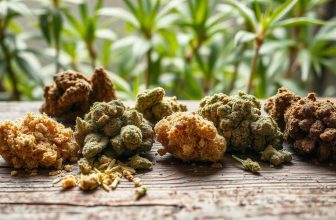In Germany, the cannabis landscape is undergoing major transformations: since recent legislation authorizing recreational cannabis, its price has plummeted. Legal requirements are also gaining the upper hand over illegal cannabis.
Regulatory reforms: greater access to medical cannabis
In a continuing effort to liberalize cannabis regulations, the German Joint Federal Committee (G-BA) has announced significant changes to the medical cannabis prescription process. A follow-up to the legalization of recreational cannabis and the opening of cannabis clubs? Until now, only a statutory illness allowed access to these treatments, limiting their availability. Now, sixteen medical specialties can prescribe cannabis without the need for prior health insurance approval, considerably reducing red tape and improving the efficiency of care.
Authorized specialties
Doctors specializing in the following disciplines are now authorized to prescribe medical cannabis directly:
- General medicine
- Anesthesiology
- Gynecology and obstetrics
- Internal medicine (including various sub-specialties such as cardiology, endocrinology, etc.)
- Physical and rehabilitation medicine
- Psychiatry and psychotherapy
Additional qualifications
In addition, certain qualifications such as geriatrics, antitumor drug therapies, palliative care, sleep medicine and specialized pain treatment also allow doctors to prescribe medical cannabis without prior insurance approval.
Economic impact: medical cannabis more affordable than black-market cannabis
According to a Bloomwell report, medical cannabis is becoming not only more accessible but also cheaper than illegal cannabis. Analyses of prescriptions over more than a year show that the cheapest medical varieties are the most in demand, with prices starting at around five euros per gram, making medical cannabis in Germany among the most affordable in the world.
This lower cost helps to reduce the appeal of black-market purchases, where sanitary conditions and product quality often remain dubious. Medical cannabis, which is controlled and free from cutting substances, promises safer consumption for users.
Increasing demand and inventory management
In the face of increased demand, Bloomwell asserts that supplies remain stable, reassuring patients of the continued availability of medical cannabis. The THC content of the different varieties available remains an important criterion, averaging around 20%, enabling doctors to choose the products best suited to their patients' therapeutic needs.
Follow us on 
Join the Community
Don't miss any news with our newsletter





